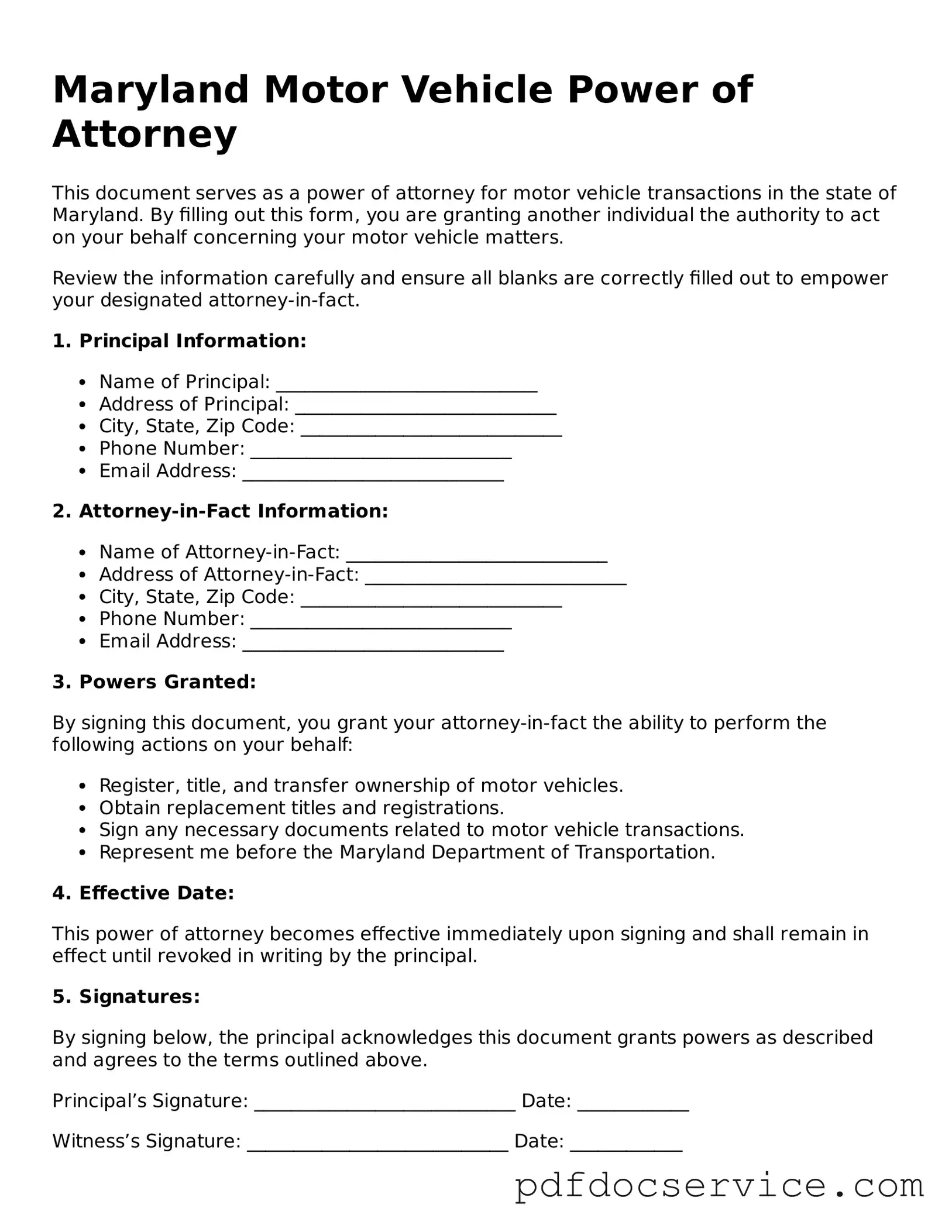Printable Motor Vehicle Power of Attorney Template for Maryland
The Maryland Motor Vehicle Power of Attorney form is a legal document that allows one person to authorize another to handle specific vehicle-related transactions on their behalf. This can include tasks such as registering a vehicle, transferring ownership, or obtaining title documents. By using this form, individuals can ensure that their vehicle matters are managed smoothly, even when they cannot be present.
Open Motor Vehicle Power of Attorney Editor

Printable Motor Vehicle Power of Attorney Template for Maryland
Open Motor Vehicle Power of Attorney Editor

Open Motor Vehicle Power of Attorney Editor
or
Get Motor Vehicle Power of Attorney PDF
Finish the form now and be done
Finish Motor Vehicle Power of Attorney online using simple edit, save, and download steps.